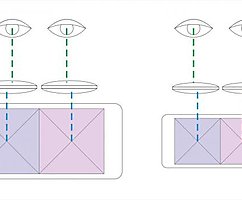Top 5 simple rules of Russian language, in which adults are wrong
 Bashny.Net
Bashny.Net
We no longer write long letters close handwriting: hashtags on Instagram, 140 characters on Twitter Yes, a comment in Facebook. Maybe that's why our mistakes are becoming more primitive. Yandex has analyzed queries of the Russians associated with the spelling of the Russian language. We have chosen the most common, checked with the Handbook Dietmar Elyashevich Rosenthal and I want you to remember them for life.
In the headlines — the true requests of our compatriots, in the descriptions and spelling of the commandments.
Fifth place. "Tin verification word", "satenuly the song"
Hard to believe, but many of us still do not remember the rule of "Check the unstressed vowels". What could be easier? Unstressed vowel of a root it is possible to check: in the unstressed syllable is spelled the same vowel as in the corresponding stressed syllable cognates. For example, try (to measure) suit — reconcile (peace) neighbors, waving (to say) flag — developing (development) industry.
So "tin" — the word "tin", and "delayed" because of "pull".
The fourth place. "Computation or calculation", "how do you spell restore"
Another simple error. Remember: consonants are doubled at the junction of the prefix and root, if the prefix ends and the root begins with the same consonant, for example, appeal to forge ahead.
Vary the spelling of a word with root-Chet (calculate, calculated, calculating; raschetti, rascists) and words with the root -done the calculations (calculate, calculate).
So: the calculation, to recover.
Third place. "Politely", "windy or windy weather"
Here Russians can understand, the theme is "the Spelling of NN n in participles and verbal adjectives" requires further study. Specifically found a clue.
Windy, wind and windless. Write these adjectives remember: in the first two, bespostavochnyj, spelled with one "n" in the third, with an attachment or two.
Educated or brought up? It all depends on what part of speech is the word. If this is a short sacrament ("She was raised by grandmother"), it is spelled with one "n" if an adjective ("She's smart and well-behaved"), then with two. Similar examples are many. For example, committed ("She's honest and loyal"), wasted ("She's committed to the cause"); spoiled and pampered; confident and sure.
Second place. "To downplay or underestimate", "priceratio".
Quick tip on spelling prefixes pre - and in-:
Pre-
The first place. "How do you spell recently," "the word at the wrong time"
It turns out that most of the search treat problem of "not" and adverbs. This Gordian knot can be cut by simple rules:
Together:
Now you know where adults make mistakes. Tell your friends, and in the future the Internet will become much more literate.published
Author: Valery Mescalin
13 advantages of "owls" who leads nocturnalMaths from scratch: what is interesting is the number 0?
Source: newtonew.com/overview/russian-mistakes-top-5
In the headlines — the true requests of our compatriots, in the descriptions and spelling of the commandments.
Fifth place. "Tin verification word", "satenuly the song"

Hard to believe, but many of us still do not remember the rule of "Check the unstressed vowels". What could be easier? Unstressed vowel of a root it is possible to check: in the unstressed syllable is spelled the same vowel as in the corresponding stressed syllable cognates. For example, try (to measure) suit — reconcile (peace) neighbors, waving (to say) flag — developing (development) industry.
So "tin" — the word "tin", and "delayed" because of "pull".
The fourth place. "Computation or calculation", "how do you spell restore"

Another simple error. Remember: consonants are doubled at the junction of the prefix and root, if the prefix ends and the root begins with the same consonant, for example, appeal to forge ahead.
Vary the spelling of a word with root-Chet (calculate, calculated, calculating; raschetti, rascists) and words with the root -done the calculations (calculate, calculate).
So: the calculation, to recover.
Third place. "Politely", "windy or windy weather"

Here Russians can understand, the theme is "the Spelling of NN n in participles and verbal adjectives" requires further study. Specifically found a clue.
Windy, wind and windless. Write these adjectives remember: in the first two, bespostavochnyj, spelled with one "n" in the third, with an attachment or two.
Educated or brought up? It all depends on what part of speech is the word. If this is a short sacrament ("She was raised by grandmother"), it is spelled with one "n" if an adjective ("She's smart and well-behaved"), then with two. Similar examples are many. For example, committed ("She's honest and loyal"), wasted ("She's committed to the cause"); spoiled and pampered; confident and sure.
Second place. "To downplay or underestimate", "priceratio".

Quick tip on spelling prefixes pre - and in-:
Pre-
- The value "very". To downplay = very reduced, totally rad = very interesting;
- The value "re-". Obstacle = something "peregorodiev" the crime = an action that "crossed" the line of the law.
- Approximation, accession (to fly);
- Located close to the (school);
- An incomplete action (suspend).
The first place. "How do you spell recently," "the word at the wrong time"

It turns out that most of the search treat problem of "not" and adverbs. This Gordian knot can be cut by simple rules:
Together:
- If the adverb is not used without not- (dowdy, unattractive, accidentally);
- If the adverb is not - can be replaced with a synonym without the non- (hard = difficult).
- There is opposition to the Union ("he Spoke not clear, and confusing");
- If the adverb is the word, reinforcing the negation: not, not, not etc.
Now you know where adults make mistakes. Tell your friends, and in the future the Internet will become much more literate.published
Author: Valery Mescalin
13 advantages of "owls" who leads nocturnalMaths from scratch: what is interesting is the number 0?
Source: newtonew.com/overview/russian-mistakes-top-5
Tags
See also
Happy child: 3 simple rules for parents
TOP-10 Russian unrealized ideas for 10 years
18 rules of behavior on the road, which will save your life. Urgent READING!
300 free sites that will change your life for the better
There are an infinite number of prime numbers twins, the difference between them does not exceed 70 million
Vladimir Spector: "literature - the reflection of the state of the soul of society, its level of development"
Creators of personal catastrophes: stop messing with old wounds
Which finger to wear ring? The symbolism of the rings - the value and meaning
















